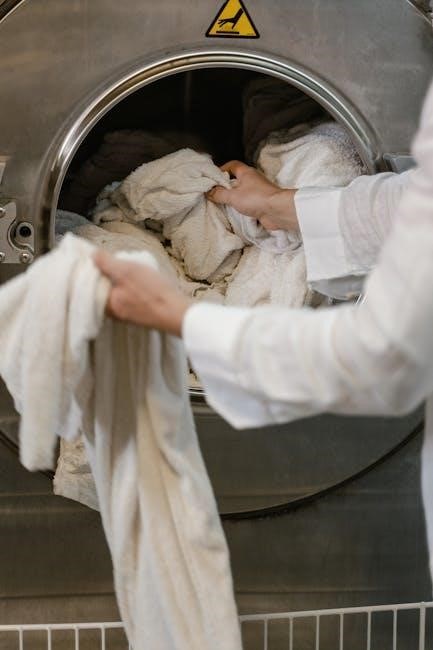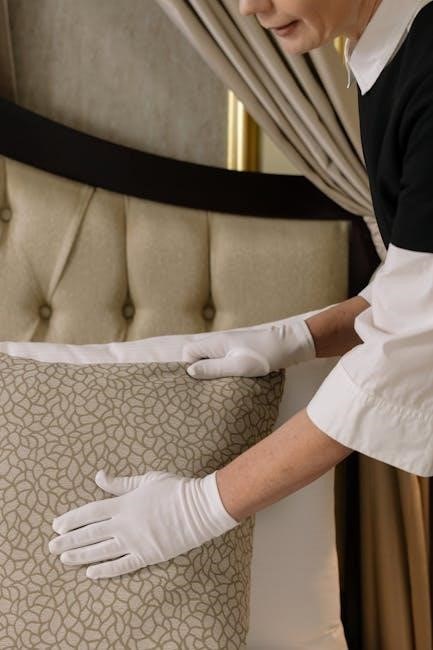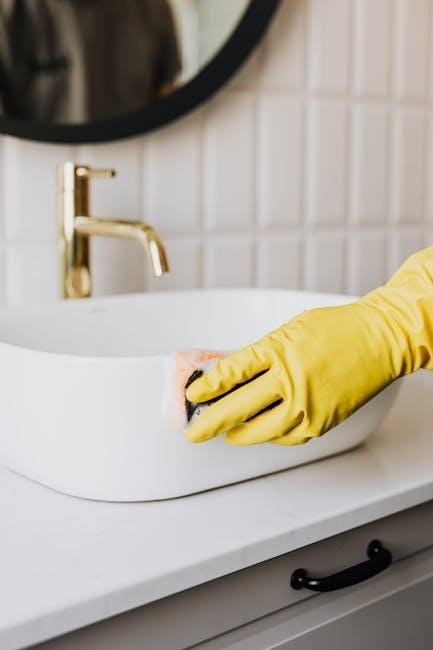The Cleaning Services Award Pay Guide outlines minimum wages, allowances, and conditions for cleaning services employees in Australia, updated annually to reflect current pay standards and regulations․
Overview of the Cleaning Services Award
The Cleaning Services Award governs minimum pay rates, allowances, and conditions for employees in the cleaning industry․ Established in 2010, it applies to various cleaning roles, ensuring fair compensation and workplace standards․ Regular updates reflect economic changes, with rates adjusting annually from July 1․ The award is managed by the Fair Work Commission, providing a framework for employers to comply with legal obligations and employees to understand their entitlements․
Importance of Understanding Pay Rates and Conditions
Understanding pay rates and conditions under the Cleaning Services Award ensures compliance with legal obligations, preventing underpayment and promoting fair workplace practices․ Accurate knowledge helps employers avoid penalties and employees verify their entitlements․ Regular updates to the award require ongoing awareness to maintain compliance and fairness in compensation, fostering a transparent and equitable work environment for all cleaning services employees․
Pay Rates in the Cleaning Services Award
Pay rates in the Cleaning Services Award are updated annually, effective July 1, ensuring fair compensation; They include minimum wages, allowances, and penalty rates, with accurate records essential for compliance․
Minimum Wage Rates for Cleaning Services Employees
Minimum wage rates for cleaning services employees are updated annually, effective July 1, ensuring fair compensation․ As of 2025, rates range from $22․76 to $29․59 per hour, depending on classification․ These rates apply to all employees covered under the Cleaning Services Award, providing a baseline for fair pay․ The United Workers Union advocates for these rates, ensuring employees receive lawful entitlements․ Employers must adhere to these rates, with accurate payroll records essential for compliance․
Annual Pay Rate Increases and Updates
Annual pay rate increases for cleaning services employees occur on July 1, reflecting updated minimum wages and conditions․ Rates are adjusted to align with economic changes, ensuring fair compensation․ The 2025 update includes a 3․75% increase, impacting all classifications․ Employers must implement these changes in the first full pay period after July 1․ The Cleaning Services Award 2025 pay guide provides detailed updates, ensuring compliance and accurate payroll adjustments for all employees․
How Pay Rates Vary by Classification Level
Pay rates in the Cleaning Services Award vary by classification level, with higher levels receiving increased wages for greater responsibility or specialized skills․ For example, a Level 1 employee earns $865․00 per week, while higher classifications receive proportionally more․ The 2025 pay guide reflects these structured increases, ensuring fair compensation aligned with job complexity and experience, as outlined in the Cleaning Services Award 2025․

Classifications and Employee Categories
The Cleaning Services Award categorizes employees into distinct classifications, defining roles like cleaners, housekeepers, and supervisors, with structured progression based on responsibilities and expertise․
Understanding Different Classification Levels
The Cleaning Services Award organizes employees into distinct classification levels, ranging from basic cleaning tasks to specialized roles requiring advanced skills․ Each level reflects varying responsibilities, expertise, and pay scales, ensuring fair compensation․ For instance, Level 1 typically covers general cleaning duties, while higher levels may involve supervision or specialized equipment operation․ These classifications help employers and employees understand role expectations and corresponding pay rates, promoting transparency and equity in the workplace․
Specific Roles and Responsibilities Within Each Classification
Classification levels define specific roles and responsibilities, ensuring clarity in job expectations․ For example, Level 1 typically involves basic cleaning tasks, while Level 2 may include specialized equipment operation or minor supervision․ Higher levels often require advanced skills, such as managing teams or handling complex cleaning procedures․ These distinctions ensure employees are fairly compensated based on their duties, aligning pay with responsibility and expertise within the cleaning services industry․

Allowances and Penalty Rates
Allowances compensate employees for specific work conditions, while penalty rates apply to shift work, weekends, and public holidays, ensuring fair pay for less desirable hours․
Types of Allowances for Cleaning Services Employees
Allowances for cleaning services employees include leading hand allowances, overtime rates, and specific payments for challenging conditions․ These are detailed in tables within the award, ensuring fair compensation for additional responsibilities or difficult working environments․ The United Workers Union guide also outlines these allowances, providing clarity on entitlements for employees covered under the Cleaning Services Award․
Penalty Rates for Shift Work and Public Holidays
Penalty rates apply to shift work and public holidays, ensuring fair compensation for employees working outside standard hours․ These rates, detailed in the award’s tables, increase pay for late nights, weekends, and holidays․ The Cleaning Services Award specifies higher rates for such scenarios, reflecting the need to compensate employees for less desirable working conditions and ensuring compliance with labor standards․

Overtime and Hours of Work
Overtime rates apply when employees work beyond standard hours, with specific conditions outlined in the award․ Overtime is typically paid at 1․5 or 2 times the base rate, depending on the circumstances, ensuring fair compensation for extended work periods․
Overtime Rates and Conditions
Overtime rates are 1․5 times the base rate for work beyond 8 hours on weekdays, 2 times for weekends, and 2․5 times on public holidays․ These rates apply to all cleaning services employees covered by the award․ Overtime is calculated based on the employee’s base rate and is paid for hours worked beyond standard shifts․ The conditions ensure fair compensation for extended work periods, as detailed in the award and the Pay and Conditions Tool․
Maximum Hours and Break Requirements
Under the Cleaning Services Award, employees can work up to 38 hours per week․ Maximum daily hours are 12, with a 30-minute unpaid break for shifts exceeding 5 hours․ Breaks must be taken within the shift, and employees cannot work more than 16 hours over two consecutive days without a 12-hour break․ Employers must adhere to these requirements to ensure fair work conditions and prevent overwork, as outlined in the award’s guidelines․

Leave Entitlements and Management
The Cleaning Services Award outlines entitlements for annual leave, sick leave, and other types of leave, ensuring fair management and calculation of employee absences and accruals․
Annual Leave, Sick Leave, and Other Entitlements
The Cleaning Services Award provides entitlements for annual leave, sick leave, and other types of leave, ensuring employees receive fair accrual rates and carryover options․ Annual leave is accrued based on ordinary hours worked, while sick leave is available for personal illness or injury․ Additional entitlements include compassionate leave and family and domestic violence leave, supporting work-life balance and employee well-being under the award’s provisions․
How Leave is Calculated and Managed
Leave entitlements under the Cleaning Services Award are calculated based on ordinary hours worked, with annual leave accrued progressively․ Employees can carry over unused leave, subject to employer approval․ Sick leave is paid and requires medical certification for absences exceeding three consecutive days․ Leave balances are managed through payroll systems, ensuring accurate tracking and compliance with the award’s provisions․ Employers must maintain detailed records to verify leave calculations and payments․

Compliance and Record-Keeping
Employers must adhere to the Cleaning Services Award, ensuring accurate payroll records and compliance with all terms․ Proper documentation is essential for audits and disputes․
Employer Obligations Under the Award
Employers must pay the correct minimum rates, allowances, and penalties as outlined in the Cleaning Services Award․ They are required to maintain accurate payroll records, ensure compliance with overtime rules, and provide fair working conditions․ Employers must also stay updated on annual pay rate changes and adhere to leave entitlements․ Proper documentation and transparency in payments are essential to avoid disputes and ensure fairness for all employees under the award․
Importance of Accurate Payroll Records
Accurate payroll records are crucial for ensuring compliance with the Cleaning Services Award․ They help employers verify correct payment of wages, allowances, and penalties․ Precise records prevent disputes, audits, and potential penalties․ Employers must document base pay, overtime, and leave entitlements clearly․ Regular audits ensure transparency and fairness, safeguarding both employers and employees․ Maintaining detailed records is essential for demonstrating adherence to the award’s requirements and fostering trust in the workplace․
Calculating Total Remuneration
Total remuneration under the Cleaning Services Award combines base pay, allowances, and penalty rates․ Employers must sum these elements to ensure accurate payment, reflecting all entitlements for each employee․
Base Pay, Allowances, and Penalty Rates Combined
Base pay forms the foundation of an employee’s remuneration, with allowances added for specific work conditions, such as leading hand roles or high-cost areas․ Penalty rates apply for shift work, weekends, or public holidays, increasing the hourly rate․ Overtime rates further enhance pay for extended hours․ Combined, these elements ensure comprehensive compensation, reflecting the nature and demands of the job, as outlined in the Cleaning Services Award pay guide․
Examples of Total Remuneration for Different Classifications
Total remuneration varies by classification, with base pay, allowances, and penalties combined․ For example, a Level 1 cleaning service employee may earn $865․00 per week, while a Level 2 employee could earn $900․00, reflecting higher responsibilities․ Penalty rates for evening shifts or weekends increase hourly rates, and overtime further boosts pay․ These examples illustrate how total remuneration is calculated based on classification, hours, and specific work conditions, ensuring fair compensation as per the Cleaning Services Award pay guide․
Regional Variations in Pay Rates
Regional pay rates vary due to cost-of-living adjustments, with higher rates in metropolitan areas to ensure fair compensation and maintain living standards for cleaning services employees․
Adjustments for High-Cost-of-Living Areas
High-cost-of-living areas require employers to pay higher rates to maintain employees’ purchasing power․ These adjustments ensure fair compensation, reflecting local economic conditions․ Metropolitan regions often have increased pay rates compared to rural areas, addressing housing, transportation, and living expenses․ This ensures cleaning services employees can afford a reasonable standard of living regardless of location, promoting equity across different regions․
Regional Pay Differences and Their Impact
Regional pay differences ensure fair compensation based on local living costs․ Higher rates in metropolitan areas offset expenses like housing and transport, maintaining employees’ purchasing power․ These adjustments promote equity, enabling workers in costly regions to enjoy similar living standards as others․ Such variations also influence recruitment and retention, as employers must align wages with regional economic conditions to attract and retain staff effectively․

Industry Standards and Comparisons
The Cleaning Services Award ensures competitive pay rates, aligning with industry standards while accounting for variations across sectors and regional cost differences․
How Cleaning Services Pay Rates Compare to Other Industries
Cleaning services pay rates are competitive, often mirroring other industries with similar skill levels․ However, regional variations and cost-of-living adjustments can lead to differences․ For instance, high-cost metropolitan areas may offer higher rates to maintain living standards․ Comparatively, cleaning services may align closely with retail or hospitality sectors but can vary based on specific roles and industry demands․
Industry-Specific Factors Influencing Pay Rates
Industry-specific factors such as regional cost-of-living adjustments, employer size, and operational demands significantly influence cleaning services pay rates․ High-cost metropolitan areas often require higher wages to maintain living standards․ Additionally, the United Workers Union plays a crucial role in negotiating fair pay rates, ensuring employees receive competitive compensation․ These factors collectively shape the pay structure, reflecting both economic and industry-specific needs․

Role of Unions in Pay Negotiations
Unions, like the United Workers Union, play a pivotal role in negotiating fair pay rates and improved conditions for cleaning services employees, advocating for equitable wages and benefits․
United Workers Union and Their Impact on Pay Rates
The United Workers Union actively negotiates with employers to secure fair pay rates and improved conditions for cleaning services employees․ Their efforts ensure annual pay increases, such as the 3․75% rise in 2025․ The UWU also provides resources, like the Cleaning Services Pay Guide, helping employees understand their entitlements and advocate for their rights effectively․
How Unions Advocate for Fair Pay and Conditions
Unions like the United Workers Union negotiate with employers to ensure fair pay rates and improved working conditions for cleaning services employees․ They advocate for annual wage increases, such as the 3․75% rise in 2025, and provide resources like the Cleaning Services Pay Guide to help employees understand their entitlements․ This support enables workers to assert their rights and receive fair compensation for their labor․

Dispute Resolution and Feedback Mechanisms
Disputes regarding pay or conditions can be addressed through formal complaints or mediation processes․ Employees can provide feedback on pay conditions through designated channels or union representatives․
Addressing Pay-Related Disputes
Pay-related disputes under the Cleaning Services Award can be resolved through formal complaints or mediation processes․ Employees or employers can seek clarification or resolution by reviewing the pay guide or consulting with unions․ The United Workers Union plays a key role in advocating for fair pay and addressing disputes․ Accurate payroll records and adherence to the award’s terms are crucial for resolving issues promptly and ensuring fair outcomes for all parties involved․
Channels for Employee Feedback on Pay Conditions
Employees can provide feedback on pay conditions through various channels, including union representatives, HR departments, or direct communication with employers․ The United Workers Union offers support for fair pay advocacy․ Formal complaints or disputes can be addressed through mediation processes․ Regular updates and resources, such as the Cleaning Services Award Pay Guide, ensure transparency and clarity in pay conditions, fostering open communication and trust between employees and employers․

Future Trends in Cleaning Services Pay
Future trends include expected pay rate increases, influenced by economic factors and industry standards, ensuring fair compensation and regional adjustments to reflect cost-of-living changes․
Expected Changes in Pay Rates and Conditions
Pay rates are expected to increase annually, with a 3․75% rise from 1 July 2025, reflecting economic factors and industry standards․ Regional adjustments will address high-cost areas, ensuring fair compensation․ The United Workers Union continues to advocate for improved conditions, influencing future pay trends․ These changes aim to maintain living standards and align with evolving workforce needs, ensuring transparency and fairness in the cleaning services sector․
Impact of Economic Factors on Future Pay Rates
Economic factors such as inflation, cost of living, and market demand significantly influence future pay rates․ As living expenses rise, pay adjustments are made to maintain employee purchasing power․ Unions play a key role in negotiating wage increases to align with economic conditions․ These adjustments ensure fair compensation, reflecting the evolving economic landscape and its impact on the cleaning services industry․
The Cleaning Services Award Pay Guide ensures fair compensation and clear employment conditions, helping employers and employees navigate pay rates, allowances, and compliance effectively․
The Cleaning Services Award Pay Guide provides a comprehensive overview of minimum wages, allowances, and penalty rates for cleaning services employees in Australia․ It outlines classification levels, overtime rates, and leave entitlements, ensuring fair compensation and compliance with employment standards; Regular updates reflect annual pay rate changes, effective from the first full pay period on or after 1 July each year․
The guide also addresses regional variations in pay rates, adjustments for high-cost areas, and the role of unions in advocating for fair conditions․ It serves as an essential resource for employers and employees to understand their rights and obligations under the Cleaning Services Award․
Final Thoughts on Navigating the Cleaning Services Award
Understanding the Cleaning Services Award is crucial for both employers and employees to ensure compliance and fair compensation․ Regular updates to pay rates and conditions require ongoing attention to stay informed․ Utilizing resources like the pay guide and the Pay and Conditions Tool can simplify compliance and ensure accurate payments․
Employers must stay proactive in adapting to changes, while employees should familiarize themselves with their entitlements․ The support of unions, like the United Workers Union, further ensures fair treatment․ By adhering to the award, all parties can maintain a balanced and equitable work environment․
